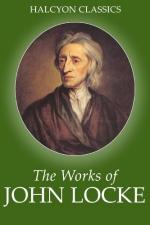
|
| Name: _________________________ | Period: ___________________ |
This quiz consists of 5 multiple choice and 5 short answer questions through Chapters 6 - 10, pp. 140 - 181.
Multiple Choice Questions
1. What does Locke say does not end when the right to guardianship ends?
(a) Parent's duty to accept child.
(b) Child's duty to respect parents.
(c) Child's duty to learn.
(d) Parent's duty to share property with child.
2. What does Sir Robert conclude about the use of the term "children of men"?
(a) That the children of men would be oppressed.
(b) That the children of men had power over Adam.
(c) That it did not pertain to Adam who had no father.
(d) That the children of men were born to serve.
3. What was the rule of inheritance among families in a commonwealth?
(a) The father decides who inherits.
(b) The eldest son inherits.
(c) The oldest child inherits.
(d) The royal family decides which families inherit what properties.
4. What was the right of succession practiced in the commonwealth?
(a) The most powerful family dominates.
(b) The family with royal connections dominates.
(c) The wealthiest family dominates.
(d) The eldest son inherits the property and right to rule.
5. To whom does Locke determine that parental power belongs?
(a) Belongs only to the mother.
(b) Belongs only to the father.
(c) It changes as the child grows.
(d) Belongs to both parents.
Short Answer Questions
1. According to the First Treatise, in whom is power vested?
2. Why it is important to figure out the right of inheritance?
3. How does Filmer define the relationship between man and other creatures?
4. Despite man's liberty, what does Locke argue that man should not be allowed to do?
5. Who settles controversies in laws?
|
This section contains 316 words (approx. 2 pages at 300 words per page) |

|




